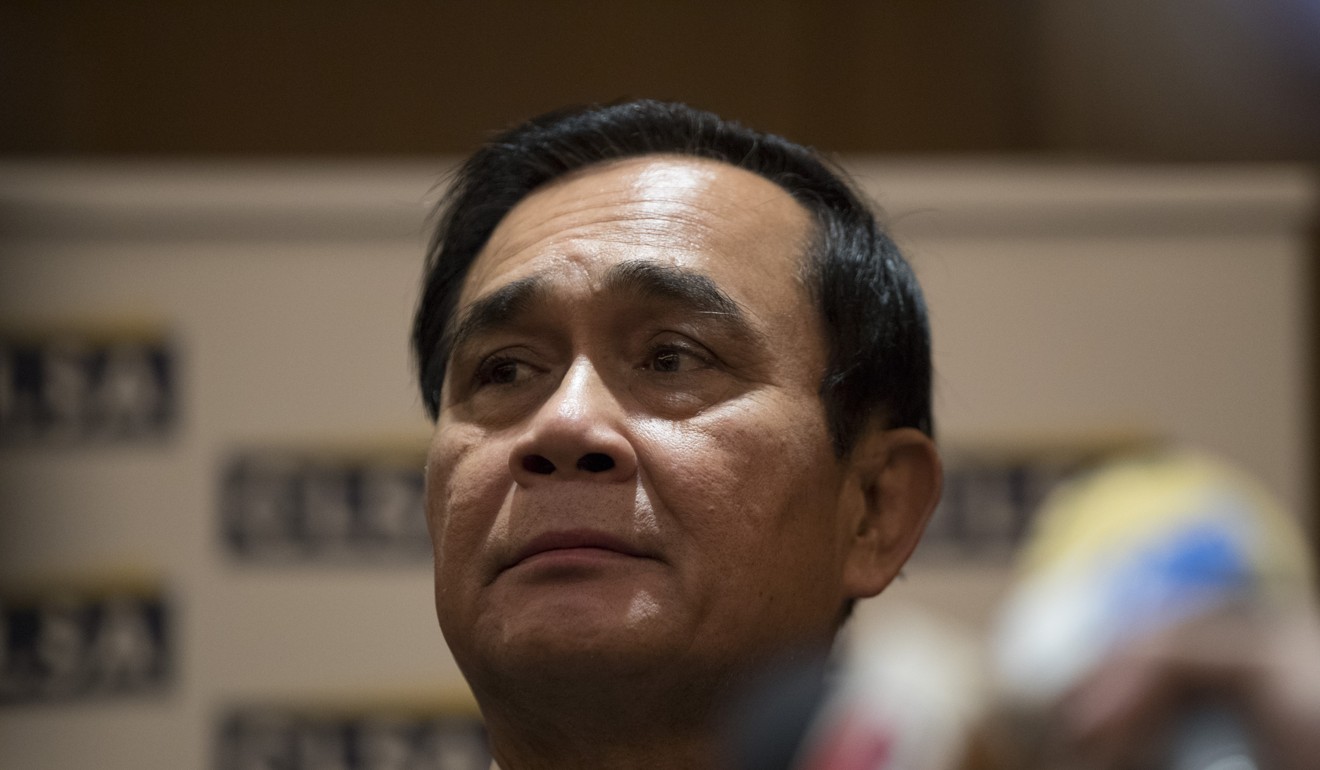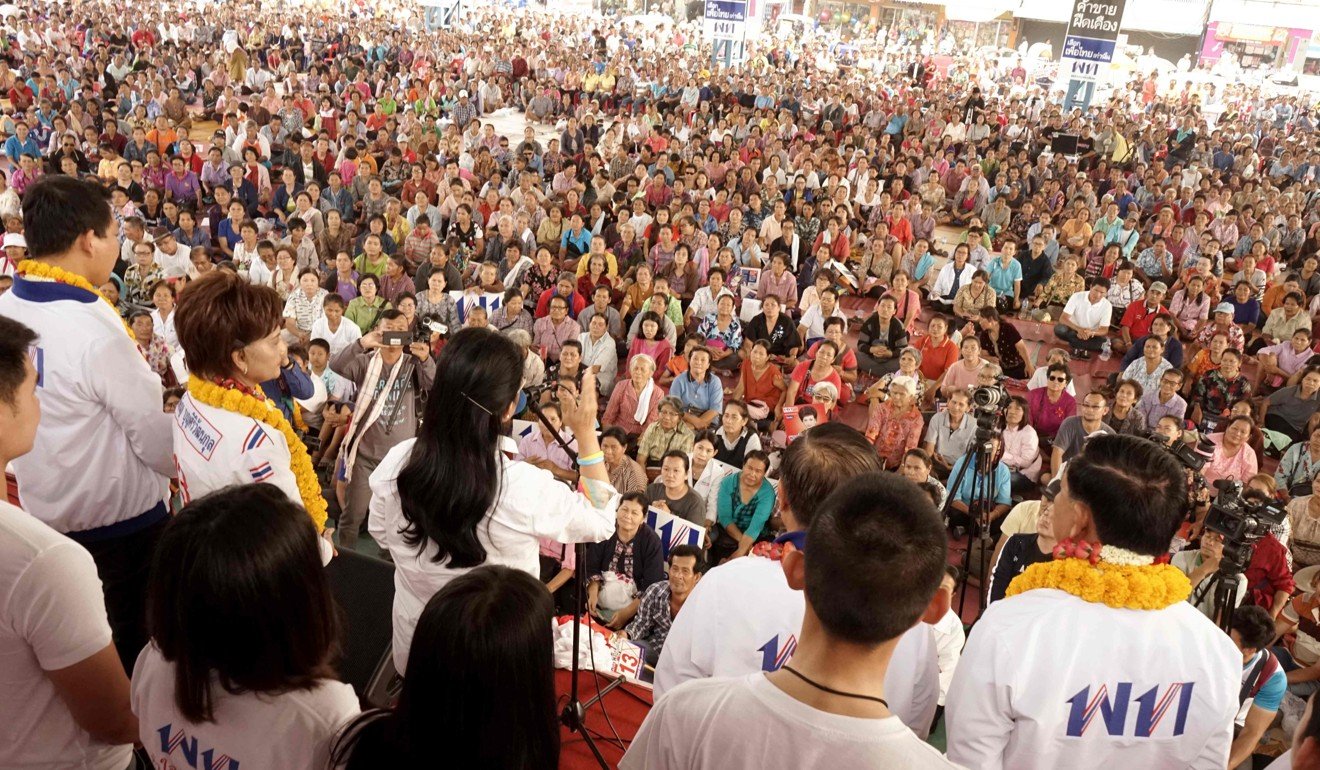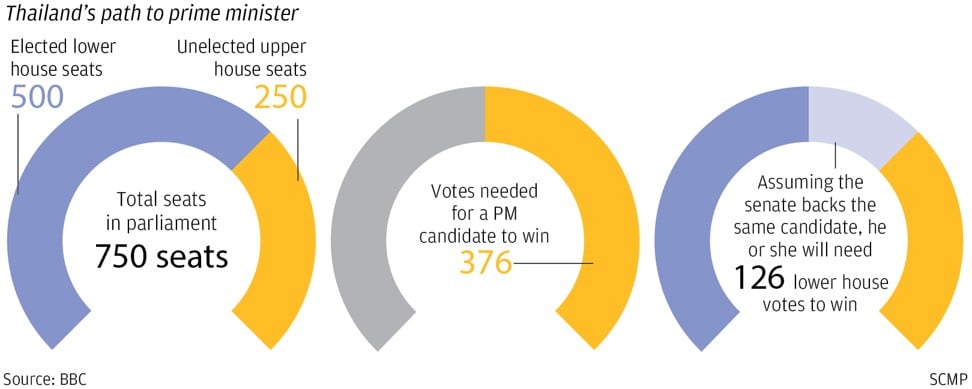
Thailand’s military-appointed Senate could steal election result, Pheu Thai Party leader warns
- In a Facebook post, Sudarat Keyuraphan says the election rules were written so that junta leader Prayuth Chan-ocha ‘will become the next prime minister’
- Prayuth’s lieutenant Prawit Wongsuwan has sparked anger by saying the Senate, which has a large say in picking the country’s premier, is ‘controllable’
The comments on Wednesday by the Pheu Thai Party’s Sudarat Keyuraphan echo growing rancour among the junta’s top opponents in recent days, after Prayuth’s top lieutenant Prawit Wongsuwan – overseeing the appointment of the 250 senators – said his boss was likely to form the next government as the upper house would be “controllable”.
Thai election: any policy you like, as long as it’s Thaksinomics
That would in effect mean the bruising electoral contest for 500 parliament seats between Pheu Thai and other pro-democratic parties on one hand and the pro-military Palang Pracharat Party on the other would virtually amount to nothing.
Palang Pracharat could get by with a mere 126 parliament seats, as with the support of the 250 senators it would have the simple majority in both houses to meet its objective – keeping Prayuth in his current job. After the election, a joint session of the 500-seat parliament and the 250-seat, military-appointed Senate must pick a prime minister.
The Senate would also have powers to dismiss a government, and has significant other remits even though none of its members are elected. These provisions were written into a 2017 constitution crafted by the junta and endorsed by King Maha Vajiralongkorn.
“These rules were written so that General Prayuth will become the next prime minister,” Sudarat said. Her party, linked to the powerful, rural-backed Shinawatra family, was ousted from government in the 2014 coup staged by Prayuth.
‘We’re too close to China’: is Thailand about to ‘do a Mahathir’?
Pheu Thai won the 2011 and 2014 polls, while its earlier iterations won the 2001, 2006, and 2008 elections in the kingdom, roiled by a decades-old stand-off between the Shinawatras and the urban establishment.
“With more than 40 million people expected to vote for the 500 MPs, the 250 senators would have the power of 20 million people,” Sudarat wrote in a sharply worded Facebook post. “We should not let these twisted rules thwart the will of the people.”
Candidates from pro-democrat parties – all of which are seeking the removal of Prayuth and the military from politics – say they are pinning their hopes on the senators breaking ranks with the military to cast their vote on who becomes prime minister based on the election result.
But political analysts say they cannot foresee such a scenario.
“It will be very difficult for the MPs to convince the senators to vote for their prime ministerial candidate,” said Titipol Phakdeewanich, a political scientist at the Ubon Ratchathani University in Thailand’s northeast.
Does King Vajiralongkorn hold all the cards in Thai politics?
He said the appointment process for the senators made it clear they would likely be junta loyalists. The names of the senators are expected to be released well after the March 24 poll.
The 250 senators’ five-year tenure begins when the next government is convened. With their tenures exceeding the government’s four-year term, the senators will have a say in who becomes the prime minister in the next election, too.

Of the 250 senators, 194 will be picked by the National Council for Peace and Order, the formal name of Prayuth’s junta. The army chief, navy chief, air force chief, military supreme commander, the civil servant head of the defence ministry and the national police chief will each get a seat, while the remaining 50 seats will divided among 10 “professional and social groups”.
Explained: Thailand’s politics and monarchy
Ostensibly, this means teachers, farmers, small business owners, former judges and lawyers and members of minority ethnic groups will have a place in the Senate.
Paul Chambers, a veteran observer of Thai politics, said he was of the view the Senate would ultimately be “of, by and for the military”.
He said members of the upper house would likely be “friends and classmates” of Prawit – the prime minister’s lieutenant – and Anupong Paojinda, another top junta figure.
After having thrown the kitchen sink in their bid to oust Prayuth, Sudarat and the leaders of other anti-junta parties, while bemoaning the likelihood of a stolen election, are not easing up on campaigning.
Sudarat in her Facebook post said the only choice for voters was to overwhelmingly support her party.

A senior Bangkok-based diplomat who has been observing the hustings over the past few weeks told This Week in Asia his assessment was that if the Senate “decides to just follow along with the junta’s plan and vote en masse for Prayuth, I fear there could be big trouble”.
Cut Thailand’s military spending? Singapore spends more
Thitinan Pongsudhirak, a well-known Thai politics commentator, wrote in a commentary on Wednesday that the “most probable scenario” post-election would be a “junta-backed and Senate-supported coalition government, most likely under Prayuth, with most parties included, except the anti-junta groups”.
“But because it is unlikely to command a sufficient number of MPs for stable rule, parliamentary deadlock will ensue in the lower house, with all roads leading to another constitutional crisis in the coming months,” he added.



